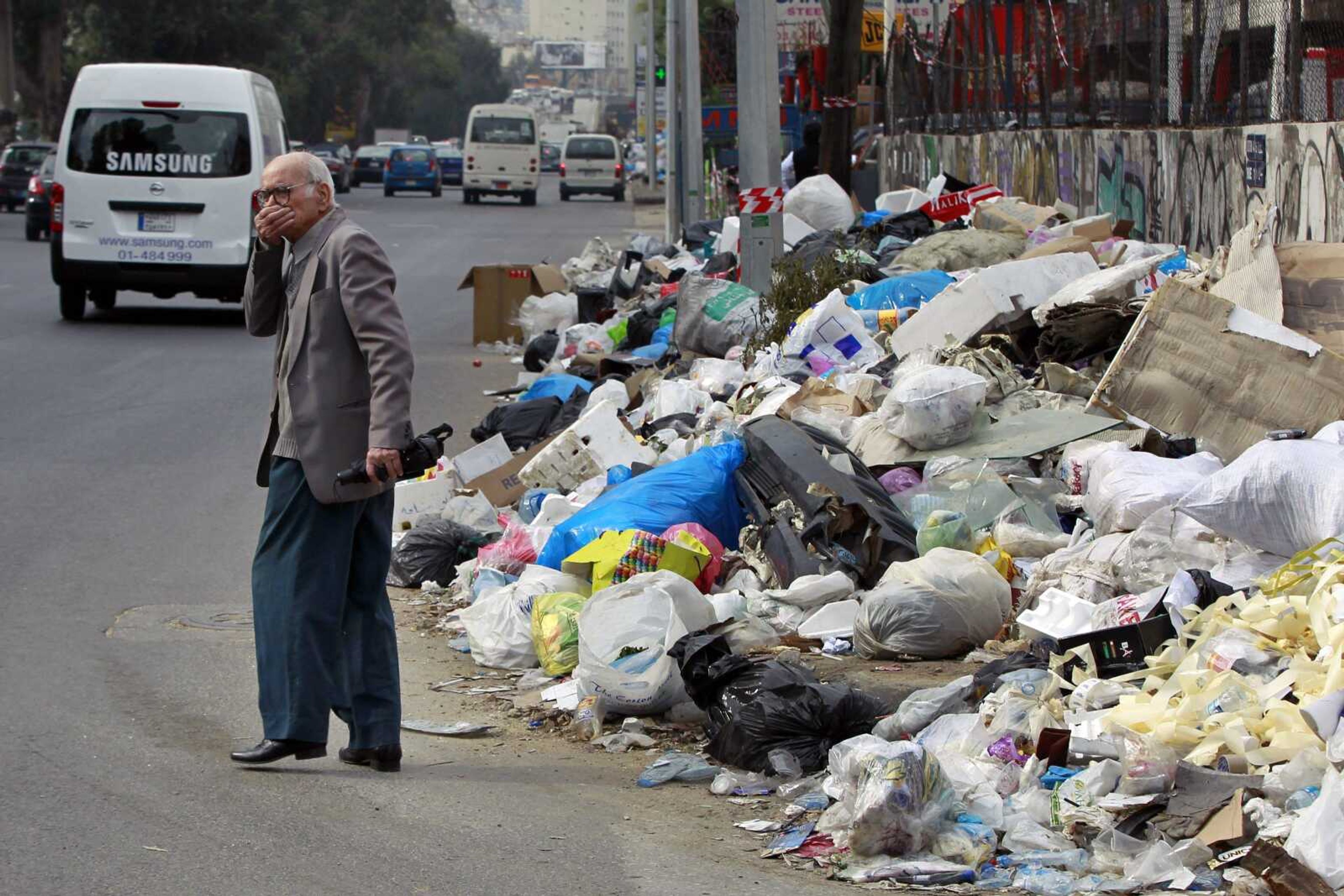Protests have died, but Lebanon's trash disaster continues
BEIRUT -- Lebanon's trash-collection crisis that set off huge protests this summer is entering its sixth month, but you hardly would know it in Beirut. Not only are the capital's streets kept relatively garbage-free, but the country's politicians have been in no hurry to resolve the catastrophe...
BEIRUT -- Lebanon's trash-collection crisis that set off huge protests this summer is entering its sixth month, but you hardly would know it in Beirut.
Not only are the capital's streets kept relatively garbage-free, but the country's politicians have been in no hurry to resolve the catastrophe.
Instead, trash is pushed to the periphery, piled in hills near the mouth of the city's river, attracting a fly infestation that has plagued Beirut's easternmost residents since early November.
On the other side of the river, trash mounds along the bank reach the height of roadway overpasses.
"The situation is disastrous," said Rachid Rahme, a physician at Lebanon's Sacre Coeur Hospital. "I don't like to get involved in politics, but I'm sure they could find a way to deal with it rather than dealing with it in this way."
The latest initiative to solve the crisis -- a proposal to export the waste temporarily -- was approved by the Cabinet after a six-hour meeting Monday evening, despite complaints by some ministers about its cost.
Prime Minister Tammam Salam emerged after the meeting, saying the pressing need to "end this nightmare" forced the government to resort to this option until a more lasting solution could be found.
Still, it likely will be at least several weeks before the implementation of the export plan.
Frustration over mounting garbage sparked a protest movement under the banner "You Stink," an epithet aimed at the government, which brought tens of thousands of demonstrators into Beirut's streets over the summer.
The collection crisis erupted in July after authorities closed the primary landfill for Beirut and the surrounding coastal governorate without providing an alternative.
The demonstrations were a catharsis of discontent directed at the political class, which has walled itself off from popular opinion and failed to provide other basic services such as water, electricity and drainage.
But those protests largely have fizzled, owing to a mix of canny political maneuvering and repressive crackdowns.
In September, young men identifying themselves as supporters of the country's Parliament speaker descended on the protesters, carrying knives and throwing punches and stones. The security forces withdrew.
Every time demonstrators attempted to approach the parliament building, security forces fired their weapons into the air, sprayed tear gas and water cannons and arrested dozens.
To a country accustomed to spasms of violence, 25 years after the formal conclusion of its civil war, the threat of disorder scared off protesters.
"The political authorities played it smart to defuse us," said Assad Thebian, one of the organizers behind the politically unaffiliated campaign.
The state's efforts to keep the capital's streets clean also helped pacify the population.
Agriculture Minister Akram Chehayeb, one of the architects of the trash exporting plan, said the country has no choice but to export after a tortured process to open new landfills collapsed.
"There's no trust in the government, so the people refused to accept sanitary landfills. And until we restart government institutions and elect a president, we are stuck with the most expensive solution," he said.
The country has not had parliamentary elections since 2009 and has failed to elect a president since 2014.
With over 1 million war refugees entering Lebanon from neighboring Syria since 2011 and the country's parties openly allied with rival sides in that conflict, Lebanon's politicians said they have to move cautiously to preserve the fragile political balance.
A few municipalities have launched their own recycling initiatives, but many others are simply burning their garbage, often in residential areas. Air contamination in these areas is now more than 400 times worse than pollution in the country's industrial areas, a recent study by the American University of Beirut revealed.
Rahme said the consequences can be disastrous and already gastroenteritis cases are up 30 percent since last year.
"There are other diseases that can happen ... It can cause cancer in the long run and asthma in the short term," he warned.
Connect with the Southeast Missourian Newsroom:
For corrections to this story or other insights for the editor, click here. To submit a letter to the editor, click here. To learn about the Southeast Missourian’s AI Policy, click here.








